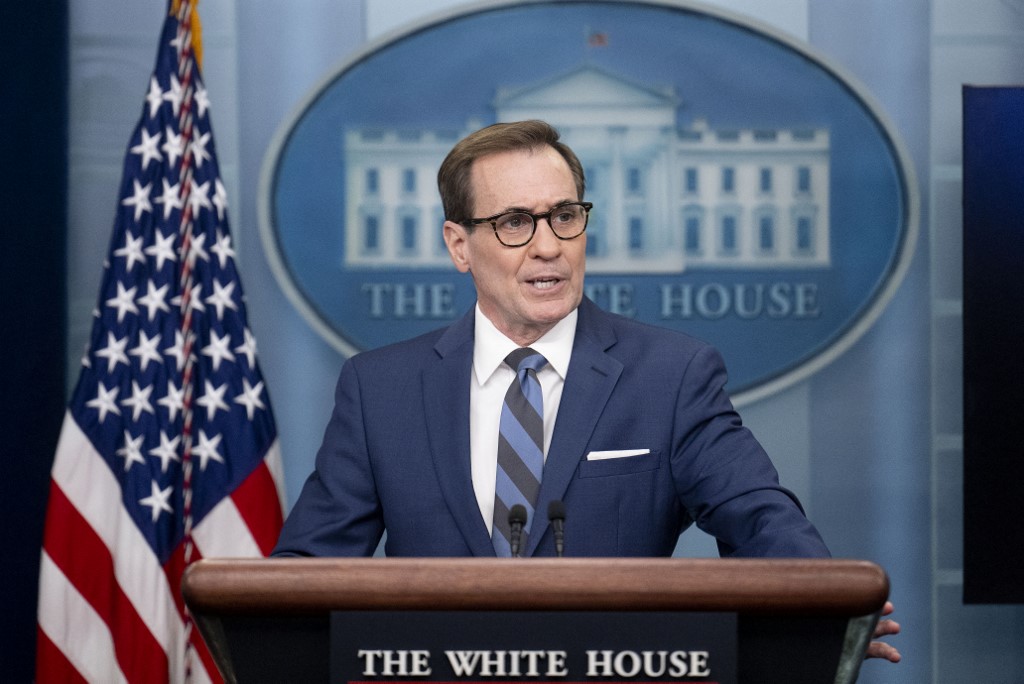Senior US administration officials have downplayed the significance of the exclusion of two NATO members, Turkey and Hungary, from a democracy summit hosted by President Joe Biden, which is currently taking place, Newsweek reported.
National Security Council Coordinator for Strategic Communications John Kirby was asked during a call with reporters on Tuesday about the US administration’s decision not to invite Turkey and Hungary to the second edition of the online Summit for Democracy 2023, which is being hosted by Biden March 28-30.
“They’re NATO allies, and we’re going to continue to work together with them on lots of different issues of mutual concern,” Kirby said. “At the same time, we’re committed to supporting democratic institutions, human rights, rule of law [and] media freedom.”
Other US officials insisted the guest list wasn’t meant to be a seal of approval. Approximately 120 nations were invited to participate in the three-day summit, which began Tuesday and will consist of a mix of in-person and virtual meetings between world leaders and senior government officials on topics ranging from strengthening human rights to fighting corruption.
It was the second time that neither country has been invited to the summit, the first version of which was held in 2021.
“This is a summit for democracy, it’s not necessarily a summit of democracies,” Rob Berschinski, the National Security Council’s senior director for democracy and human rights, said last week at a forum previewing the summit.
“Despite the fact that we are pitching an extraordinarily large tent, we need to draw the line somewhere,” Berschinski said.
Turkey has seen an erosion of democracy and backsliding of human rights and freedoms as well as media freedom in past years under what many say is the “one-man rule” of President Recep Tayyip Erdoğan, which is criticized for lacking checks and balances and destroying the separation of powers, and hence the rule of law, in the country.
According to an annual report from Amnesty International released on Monday, widespread human rights violations continued to take place in Turkey throughout 2022. The report recounted ongoing human rights issues such as the suppression of the freedoms of expression, assembly and association, as well as widespread discrimination, torture and ill-treatment.
The US State Department also recently drew attention to pervasive human rights violations in Turkey in its 2022 Country Reports on Human Rights Practices with a subsection on Turkey in which it details human rights violations in the country
The report listed credible reports of arbitrary killings; suspicious deaths of persons in custody; forced disappearances; torture; arbitrary arrest and continued detention of tens of thousands of persons, including opposition politicians and former members of parliament, lawyers, journalists, human rights activists and an employee of the US Mission, for purported ties to “terrorist” groups or peaceful legitimate speech; and political prisoners, including elected officials, as being among the most significant human rights issues in the country.
Biden has also made a point of highlighting Turkey’s deteriorating record on human rights — an issue that was largely overlooked by his predecessor, Donald Trump.
It took him three full months after his inauguration to place his first call to Turkish President Erdoğan.
That was to inform him that Washington was recognizing the Armenian genocide by the Ottoman Empire during World War I.
Relations between the US and Turkey took a nosedive after Turkey’s purchase of the Russian S-400 missile defense system that the US believes can be used to spy on Western defenses. Washington imposed sanctions on Turkey’s military procurement agency for the purchase in 2020. It also expelled Turkey from the F-35 jet striker program under which Western allies produce the next-generation fighter jet’s parts and secure early purchasing rights.
